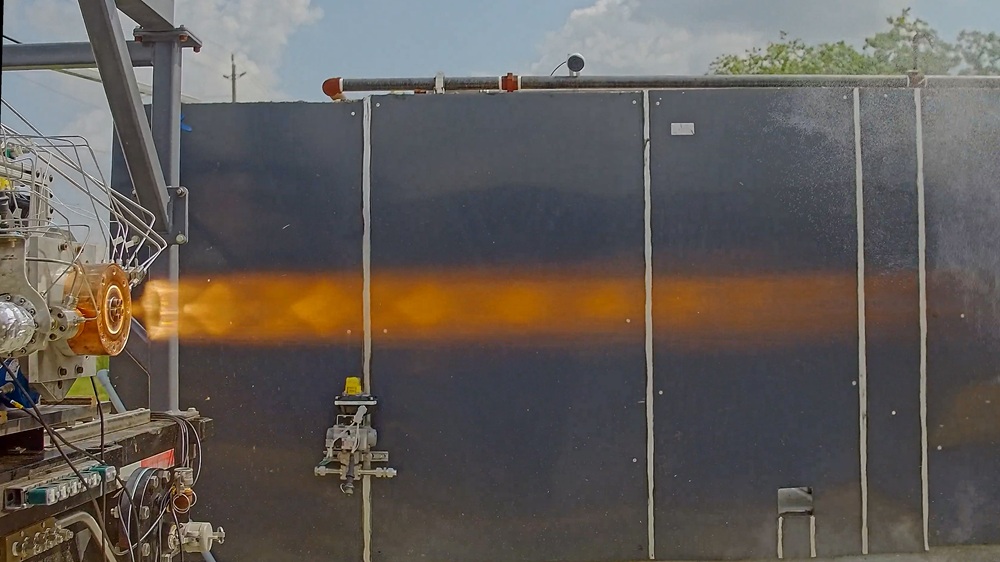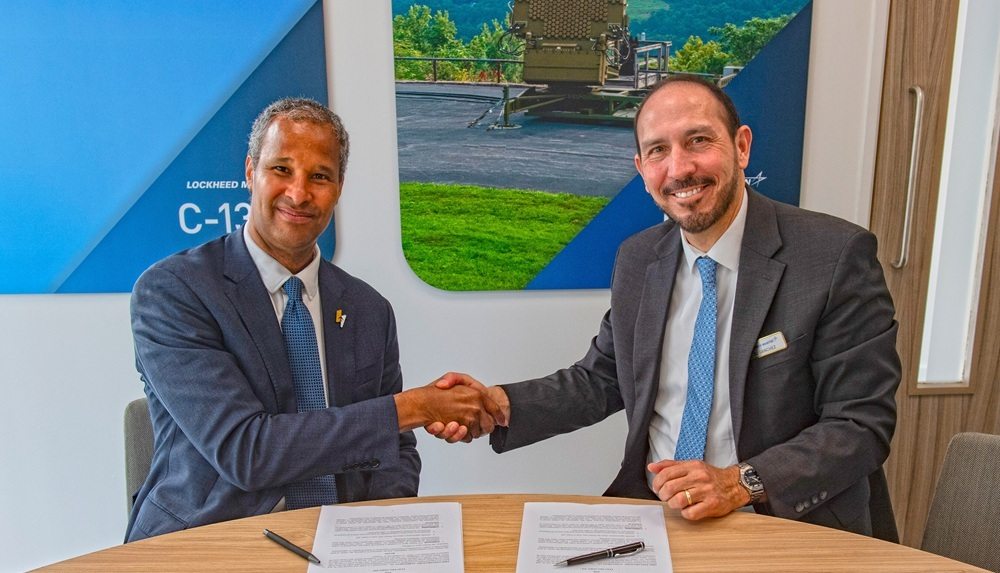Paris: In a first-of-its-kind test for aerospace propulsion and sustainable fuels, CleanJoule’s high-performance alternative rocket fuel, SpaceSAF, has successfully powered a Rotating Detonation Rocket Engine (RDRE) developed by Houston-based Venus Aerospace. This first-of-its-kind ground test validates the compatibility of next-generation alternative fuels with cutting-edge propulsion technology, marking a major step forward in advancing environmentally sustainable and high-efficiency rocket systems.
The test, conducted at Venus Aerospace’s Houston facility, demonstrates the operational flexibility of RDRE technology when fueled by SpaceSAF, a drop-in replacement for traditional liquid rocket fuels such as RP-1 and RP-2. The successful ignition and sustained detonation of the RDRE using SpaceSAF confirm that alternative fuels can meet stringent performance demands while significantly reducing emissions, a critical factor for the expanding commercial and defense aerospace sectors.
“Without affordable, domestically-produced alternative fuels, the financial and environmental costs of space missions become unsustainable,” said Mukund Karanjikar, CEO and founder of CleanJoule. “The successful detonation of an RDRE utilizing SpaceSAF proves that alternative fuels can deliver for both performance and emissions needs in commercial and defense applications.” This milestone underscores CleanJoule’s mission to provide sustainable, high-energy fuels that enable more efficient and eco-friendly aerospace operations.
SpaceSAF is engineered to be a direct substitute for conventional liquid rocket propellants, enhancing mission capabilities by increasing payload capacity and range. Derived from domestic biomass feedstocks, it supports distributed manufacturing, strengthening supply chain resilience while reducing carbon emissions, soot, and contrail formation. Alongside SpaceSAF, CleanJoule also produces a sustainable solid rocket fuel (SSRF) from the same base material, designed as a superior drop-in replacement for existing solid rocket motors.
Venus Aerospace is at the forefront of hypersonic propulsion innovation with its RDRE technology, which harnesses spinning detonation waves to achieve propulsion efficiencies theoretically 15% higher than traditional rocket engines. This efficiency translates into reduced propellant consumption and longer flight ranges, making RDREs ideal for next-generation aerospace vehicles.
The company recently achieved the first-ever U.S. flight test of an RDRE at Spaceport America, New Mexico, demonstrating the engine’s performance and reliability under real flight conditions. This historic flight test, coupled with the recent successful ground test using SpaceSAF, positions Venus Aerospace as a leader in developing affordable, scalable propulsion systems for both commercial and defense applications.
Nick Cardwell, VP of Product and Advanced Concepts at Venus Aerospace, highlighted the significance of the fuel test: “This test helps advance an important conversation in aerospace: how to pair next-gen propulsion with alternative fuels that don’t compromise on performance. CleanJoule’s work on high-performance, low-emissions fuels contributes meaningfully to an evolving space and defense ecosystem, and we’re pleased to see their product perform under real operational conditions”.
The collaboration between CleanJoule and Venus Aerospace comes at a critical juncture as the aerospace industry faces mounting pressure to reduce the environmental impact of increasingly frequent space launches. With global satellite deployment, exploration missions, and defense operations accelerating, the demand for sustainable yet high-performing rocket fuels is more urgent than ever.
Venus Aerospace’s RDRE technology, combined with CleanJoule’s SpaceSAF, offers a promising pathway to meet these challenges. The RDRE’s compact design and superior efficiency, along with the fuel’s enhanced energy density and reduced emissions, could enable hypersonic vehicles that are not only faster and more capable but also more environmentally responsible.
Venus Aerospace’s co-founder and CTO, Andrew Duggleby, emphasized the importance of these developments: “We’ve built an engine that not only runs but runs reliably and efficiently. Combined with alternative fuels like SpaceSAF, this technology lays the foundation for sustainable hypersonic flight and space access”.
CleanJoule Inc., based in Salt Lake City, Utah, specializes in producing advanced, sustainable aviation and rocket fuels using domestic biomass feedstocks. Their proprietary manufacturing process enhances fuel energy density while reducing carbon emissions and other pollutants. Supported by investors including Indigo Partners and Frontier Airlines, CleanJoule aims to revolutionize aerospace fuels with a focus on supply chain resilience and environmental sustainability.
Venus Aerospace, headquartered in Houston, Texas, is pioneering hypersonic propulsion technologies designed to enable aircraft and spacecraft to reach speeds exceeding Mach 6. Their RDRE represents a breakthrough in rocket engine design, offering improved efficiency and scalability for commercial and defense aerospace applications. The company is actively advancing flight tests and integration efforts toward reusable hypersonic vehicles.
This successful test of CleanJoule’s SpaceSAF in Venus Aerospace’s RDRE marks a significant moment in aerospace innovation, demonstrating that sustainable fuels can power the next generation of high-performance propulsion systems without compromising mission requirements or environmental goals.





